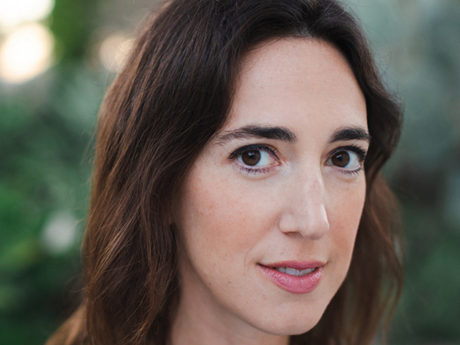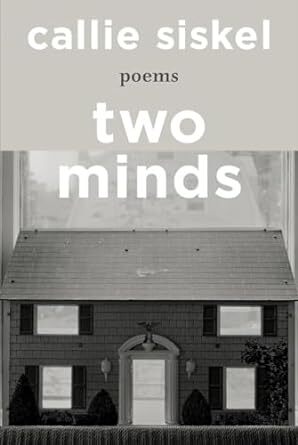In Their Own Words
Callie Siskel on “Bildungsroman”

Bildungsroman
My father said, do what you love, and the money will follow.
Mrs. Ramsay added, but you’ll have to be up with the lark.
My mother said, I had children too early.
We all make our choices, my sister said.
My rabbi said, repeat after me, I am my beloved’s
and my beloved is mine.
A crow on the powerline imitated the call of another bird.
My therapist said, tell me what makes you angry.
Canceling our trip, my friend said, I hope you’ll understand some day
that it’s a decision I need to make.
The lack of moon out my window said the moon
was consorting with the sun.
Acknowledge those who’ve played a role in your life,
my sign reading said, even if your history is strained,
they have shaped who you are.
My mother said, was it really that bad?
My grandfather after whom I was named said,
when you’re on wheels, you’re never lost.
Stop trying to figure it out, my handwriting said,
let it reveal itself.
When people cried needlessly my great grandmother was known
to have said, crying with a loaf of bread under their arms.
The obituary said my father said, I’m in a hurry to get well.
I still grieve but I don’t dwell on it, my teacher said, there’s no point.
My baby brother said, it was harder for you.
Naked before the mirror, my body said, you have not used me enough.
It never feels like the right time, my friend said.
My doctor said, there’s plenty of time, I would tell you.
Declare yourself! my grandmother said.
On “Bildungsroman”
The original title of “Bildungsroman” was “Lyric in Search of I.” I often start writing by articulating an idea, and in this case, a conceit: a search for an “I” amid a pileup of sayings, said directly to me, read by me, or repeated to me, that have played a part in my life. There are many “I”’s in this poem, but the speaker does not really address herself in the first person–the only instance of such is when she introduces her “grandfather after whom I was named,” and even then, her identity is contingent on his. Her body also addresses her in the second person, but this is, of course, imagined.
I wrote this poem as I was working toward the completion of my debut book of poems, Two Minds, which elegizes my father and simultaneously seeks to carve out an identity for the speaker apart from and through her experience of formative loss. The book asks, how do we move past the story of what happened to us, in order to embrace the present, and the possibility of the future? I knew that the book was building toward a greater sense of the speaker separate from her grief, but I also wanted to dramatize the sensation of relying on others in order to self-determine.
As the collection oscillates between childhood and adulthood, loss and creation, the speaker finds herself considering the future, as if for the first time: work, marriage, motherhood. In keeping with the directional “no way out but through,” the poem indulges and foregrounds the words of her community, living and dead, and the imagined words of the natural world in order to arrive, hopefully, on the threshold of change. The final words of the poem are not the speaker’s, but rather an invocation by her grandmother–Declare yourself!”–as if transformation must happen off the page.
I ended up titling the poem “Bildungsroman,” because I wanted to convey that word’s sense of literary scope, used to describe a novel, as well as the notion of one’s “formative years.” When do those years end? In childhood? At all? I remember learning the literary term in college while reading Portrait of the Artist as a Young Man, and I liked the idea that this poem is also a portrait of my own artistic journey, which is both complicated and enriched by my propensity to internalize the thoughts of my family and community. My grandmother’s final words are a wake-up call and a warning that urged me on toward the book’s end and beyond.



